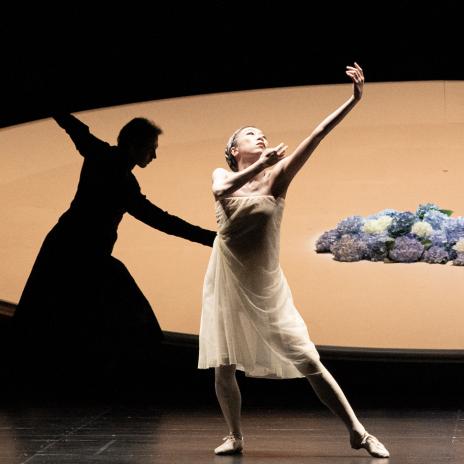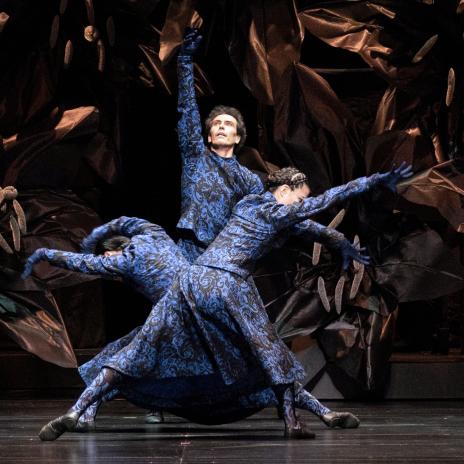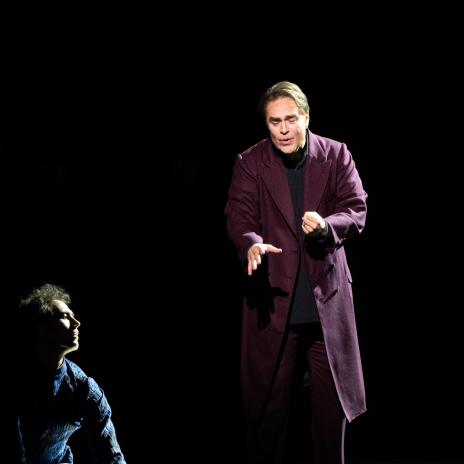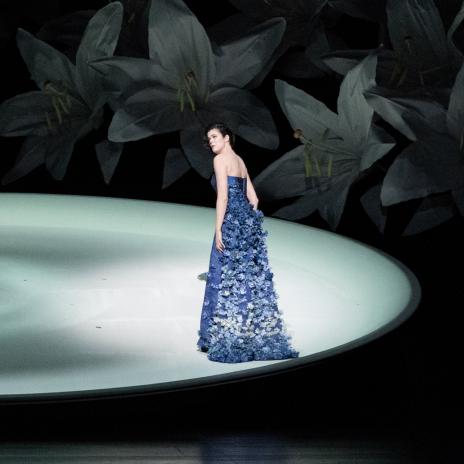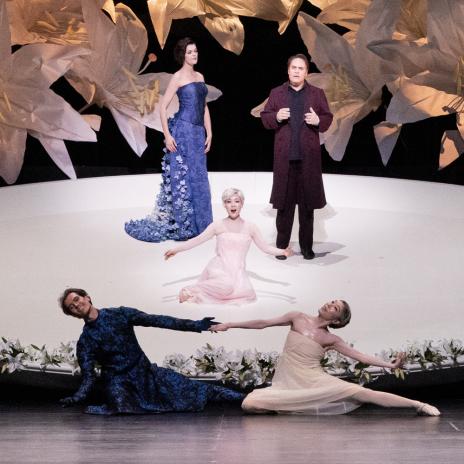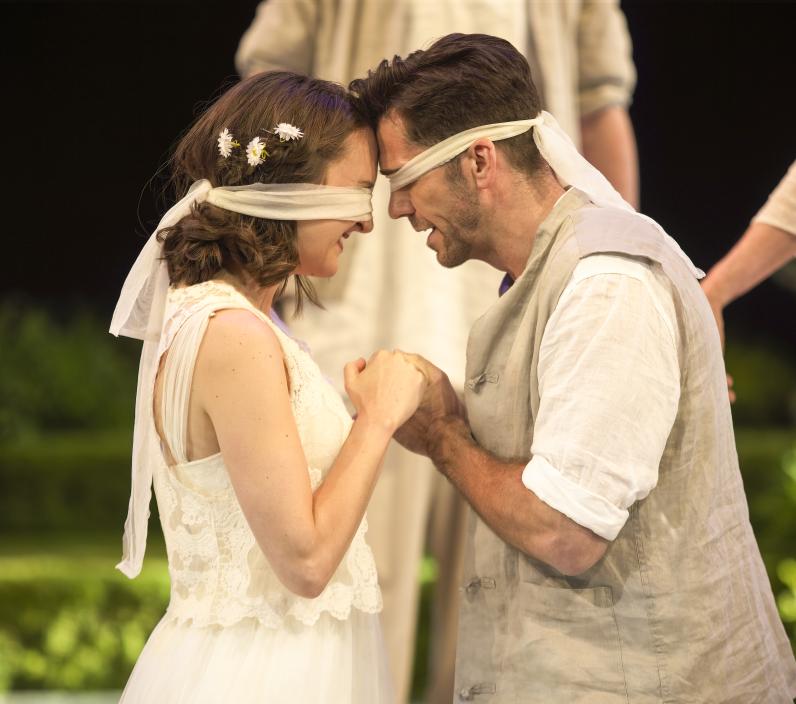

Orpheus and the power of song
Part human, part divine, Orpheus embodies the power of song. The sun god Apollo is said to have taught him his skills as a musician and poet. He deployed them to charm his contemporaries on earth but, beyond that, to gain entry to the forbidden territory of the underworld. It is no wonder that he became the emblem of the artist who transcends mundane cares and brings us closer to eternal verities. Nor is it a surprise that Orpheus has been chosen by so many composers as a symbol of the artist, whose life’s work is to strive, to fail, but to be remembered, to become immortal.
The first opera, at the end of the 16th century, was Jacopo Peri’s Euridice; and opera’s first masterpiece was Claudio Monteverdi’s La favola d’Orfeo. Euridice and Orpheus’s marriage is celebrated in Act 1, but by Act 2 she is reported dead. The opera becomes a lament for her loss. The central scene, and the longest lyric section, is Orpheus’s six-stanza plea, beginning ‘Possente spirto’, to Charon to allow him to cross the river Styx and enter the underworld. It is the moment in which the nascent form of opera finds its voice. It challenges the listener to remain unmoved by its elaborate filigree of coloratura interspersed with ritornelli. Despite Hope’s injunction ‘Lasciate ogni speranza o voi che entrate’, Orpheus still believes he will succeed in his mission. Act 4 takes place in Pluto’s domain. By Act 5 Orpheus has been tricked and returned to earth empty-handed. He laments his lost hope in another extended passage, which balances ‘Possente spirto’ in Act 3, and in which his words find mournful echoes among the surrounding rocks. Apollo’s concluding benison scarcely comforts the bereft artist.
Most beautiful is the moment in Garsington Opera’s performance after the opera has finished, when the full ensemble and conductor gather to sing Monteverdi’s unaccompanied madrigal ‘Che dar più vi poss’io?’ Time stands still.
Photo: Orfeo, Garsington Opera © Craig Fuller
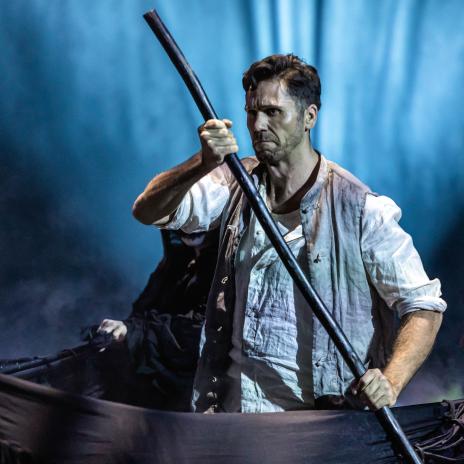
‘Modern’ opera may be said to have begun 155 years later with the first of Gluck’s ‘reform’ operas. Almost inevitably, its subject was Orpheus and, although its title is Orfeo ed Euridice, it is Orpheus who remains centre-stage throughout. Indeed, Eurydice has died before the opera begins with Orpheus’s searing grief cutting through the chorus of mourning. I remember that we were performing this opera at English National Opera on the evening of 9/11 in 2001, and the nervousness on stage about how to reflect the enormity of the event. The stunned audience recognised that Gluck’s simple but sincere opera of mourning spoke to the heart.
Photos: Orfeo ed Euridice, New National Theatre Tokyo © Rikimaru Hotta
The movement of Gluck’s music, solemn and animated, furious and sublime, appeals to choreographers. Japan’s Saburo Teshigawara revealingly describes ‘the harmony and dissonance between the musical and the visual elements’ as a source of tension, expressing different shades of darkness, uneasiness and doubt. His aim ‘for opera to become poetry’ is a resolution which echoes the founders of opera. The conductor Masato Suzuki, renowned Principal Conductor of Bach Collegium Japan, describes how Gluck transformed Baroque rhetoric, with its secco recitatives, into a continuous flow which would ultimately lead to Wagner.
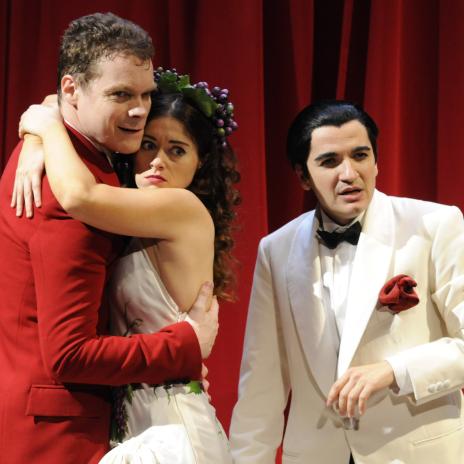
While Wagner did not compose an Orpheus, he depicted the struggles of the artist in Die Meistersinger. His compatriot Offenbach treated them far more flippantly in his opéra-bouffon Orphée aux enfers, even allowing his titular musician to play a riff on Orpheus’s most famous number, ‘Che farò senza Euridice’, from Act 3 of Gluck’s opera. Offenbach’s Orpheus is only too pleased that Pluto has whisked off Eurydice, so that he is free to play with his pupils and admirers; and Eurydice finds partying in the underworld far too much fun to want to return to her former life. Offenbach’s gods are lascivious and venal, much like the politicians of Second Empire France whom they were designed to lampoon.
Offenbach’s irreverence extended beyond politics to the cultural scene. He punctured the pompous pretensions of French grand opera with irresistible tunes and wit. He shares with Rossini the knack of writing music which creates laughter. His satire still strikes targets today.
Photo: Orphée aux Enfers, Festival d'Aix-en-Provence © Elisabeth Carecchio
The enduring resonance of the Orpheus myth is shown by its appeal to more recent composers, among whom one might cite Stravinsky’s ballet Orpheus; Harrison Birtwistle’s lifelong obsession culminating in his masterwork The Mask of Orpheus and the later chamber opera The Corridor in which Eurydice becomes the central character; Philip Glass’s Orphée; Ricky Gordon’s Orpheus & Eurydice.
Opera North in Leeds has spent five years devising Orpheus, a treatment of the myth which fuses Italian baroque and Indian classical music. The story follows that of Monteverdi’s opera, but the setting is that of a wedding between a western man and an Asian woman. The music combines one-third pure Monteverdi with one-third Indian classical and one-third fusion of the two musical worlds. The joint musical directors are sitarist and composer Jasdeep Singh Degun and baroque specialist Laurence Cummings, who also conducted the Garsington Orfeo. The cast is an equal mix of western and South Asian performers; and the director is Anna Himali Howard. Hard to predict in advance, the project is testament to the lasting life of a story which predates Homer.
Shelley claimed that ‘poets are the unacknowledged legislators of the world’. Icarus used wings to fly too close to the sun, so that the wax securing them melted and he fell to be drowned in the sea for his presumption. Orpheus’s devotion to the sun god enraged the Thracian Maenads, followers of the rival god Dionysus, and they tore him to pieces. As his severed head and lyre floated down the river Hebrus to the sea, they were still singing mournful songs.

